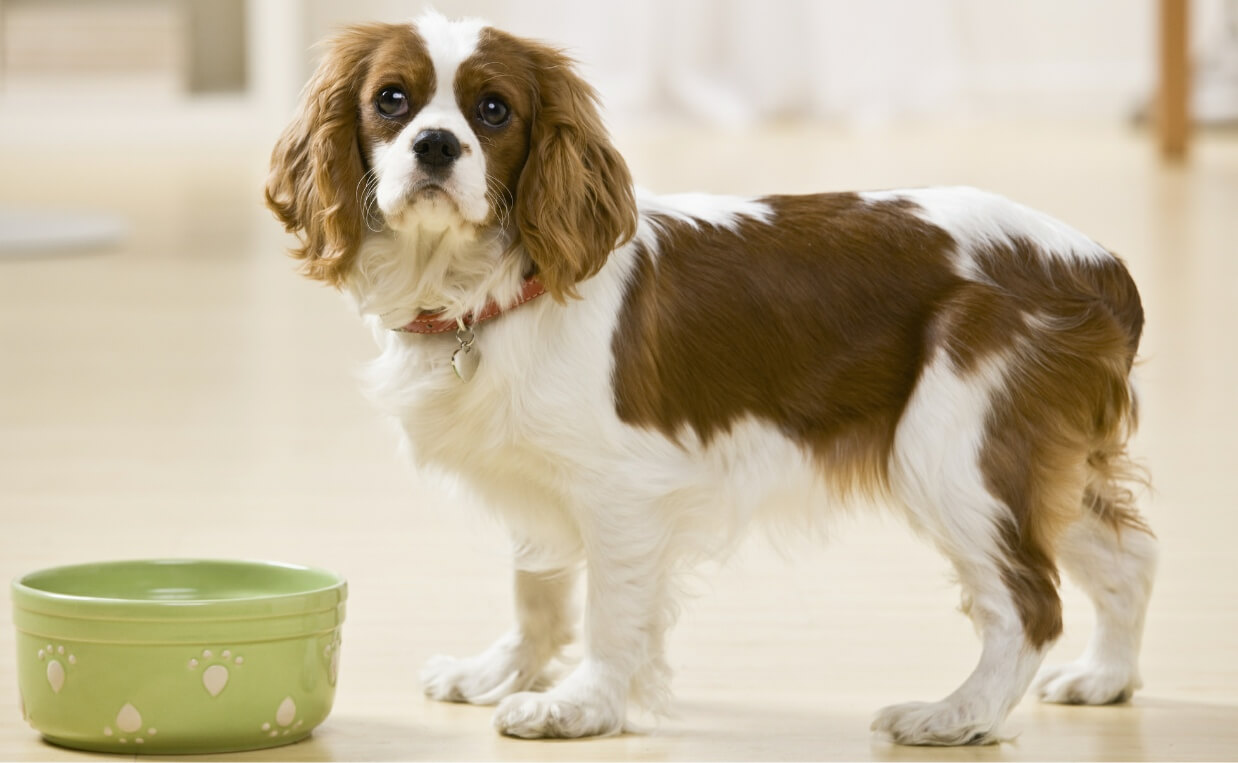
Since many people enjoy spicing up their food with hot sauce and peppers, they may think their dog would enjoy a sprinkle of spice on his or her dinner too. But is it okay to give your dog a bit of hot sauce or other spicy topping on their food?
The answer is no, hot sauce is not recommended for dogs. Sharing spicy foods with your dog may cause more problems than you may realize. Spicy foods can be toxic and cause stomach problems, including pain, diarrhea and gas. They can also cause excessive thirst, causing your dog to vomit.
While dogs and humans may have some similarities, how their bodies react to various foods can be very different. There are several human foods you shouldn’t give your dog, such as garlic and onions. While these foods are beneficial for people, they could destroy your dog’s red blood cells, even in small amounts. Dogs can even become anemic if they ingest garlic into their system.
Read more: Ultimate Guide to Foods You Can and Can’t Feed Your Dog
Why is Hot Sauce Dangerous for Dogs?
Hot sauce contains ingredients not good for dogs. Capsacin is the active ingredient in chili peppers that gives them their spice. Capsacin causes irritation to dogs’ gastrointestinal system.
Many hot sauces also contain vinegar, which can also lead to stomach problems in canines.

More Reasons You Shouldn’t Give Your Dog Spicy Foods
Like people, healthy dogs need well-balanced meals and plenty of exercise. When dog parents feed their dog people food, they may be creating an imbalance in their dog’s digestive system. This is especially dangerous in small dogs and puppies. Plus, once you open the door to feed your dog human food, your dog will naturally want to beg for everything you are eating. This can lead to a bad habit difficult to break.
Read more: 8 Trustworthy Tips for Selecting the Right Dog Food
Another thing to consider is most dogs don’t prefer spicy food. As a matter of fact, they may not taste it much at all. Unlike humans, who have 9,000 different taste buds, dogs have about 1,700 taste buds. Your dog will not enjoy his or her food any more with hot sauce or other spicy flavors; he or she simply probably won’t taste much of a difference and may end up with an upset stomach. You can try different dog flavors, like different meat flavors, but keep in mind dogs don’t mind having the same thing to eat every day.

Consider also your dog’s strong sense of smell. He or she may not taste as much as you do, but they have 300 million olfactory receptors, compared to our 6 million. Now think of how a whiff of cumin can make your eyes water. Now think of how much greater the impact of that smell can have on your dog.
What To Look For If Your Dog Eats Hot Sauce
What should you do if your dog accidentally gets into some food with hot sauce on it?
Dogs who ingest a small amount may experience mild symptoms, such as irritation to the esophagus, stomach and intestines. However, dogs experiencing a moderate to severe reaction may experience vomiting, diarrhea, abdominal pain and may refuse to eat. Dogs with these symptoms need to be seen by their veterinarian.

If your dog accidentally ingests hot sauce, consult with your veterinarian for advice on whether you can monitor your dog at home or if your dog needs to be taken to an emergency vet clinic.
Final Thoughts
When it comes to feeding your dog, keep feeding your dog his or her own food, and don’t give them any hot sauce or spicy foods. It’s just better for him or her without the hot sauce. Play it safe. Keep hot, spicy condiments out of your dog’s reach.


 How to Keep Your Dog Cool and Safe During Hot Weather
How to Keep Your Dog Cool and Safe During Hot Weather National Pet Poison Awareness Week – March 18 – 24, 2018
National Pet Poison Awareness Week – March 18 – 24, 2018 How to Choose the Best RV Pet Temperature Monitor to Keep Your Dog Safe
How to Choose the Best RV Pet Temperature Monitor to Keep Your Dog Safe 8 Tips for Choosing Safe Chews for Your Dog
8 Tips for Choosing Safe Chews for Your Dog 7 Indispensable Tips for Hiking with Your Dog in Winter
7 Indispensable Tips for Hiking with Your Dog in Winter






Leave a Reply